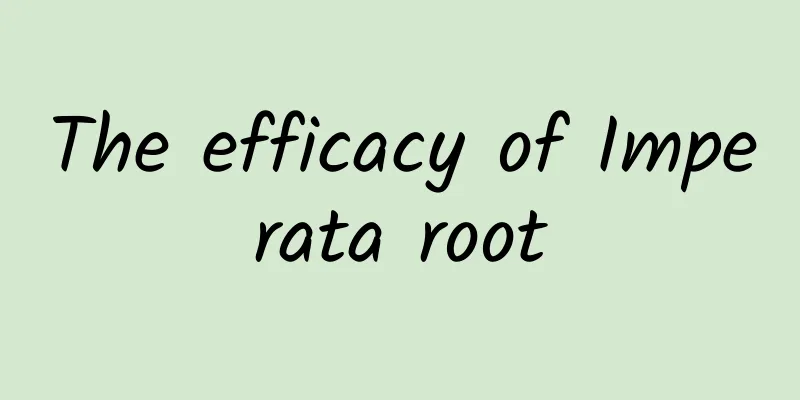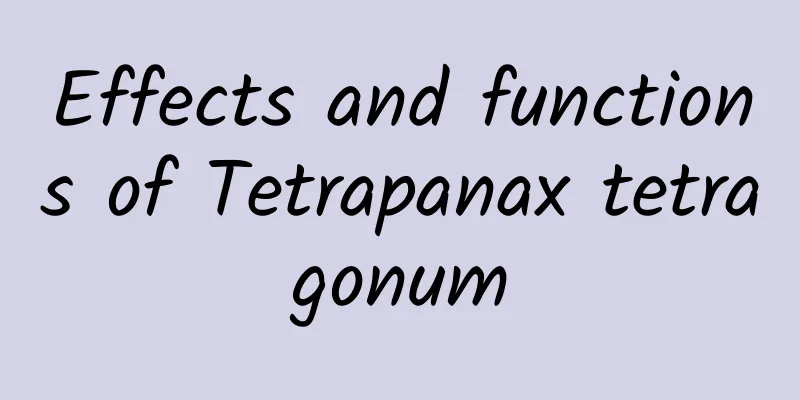The efficacy of Imperata root

|
Medicine is indispensable to people. Medicine has a good effect on the treatment of diseases, and different medicines are very helpful in treating different diseases. Therefore, the choice of medicine also needs to be based on the condition of the disease, so that the disease can be improved. Imperata root is a good choice for treating hematuria and edema, but such medicine also has many aspects in the treatment of diseases. So what are the effects of Imperata root? There are many benefits of Imperata root. The following is a detailed introduction so that you can have a good understanding of this issue. When choosing Imperata root, you can rest assured that it will not cause any harm to human health. The effects of Imperata Root: Indications: Cooling blood and stopping bleeding, clearing away heat and detoxifying. Used for vomiting blood, hematuria, stranguria due to heat, edema, jaundice, difficulty urinating, thirst due to fever, vomiting due to stomach heat, and cough. For oral administration, decoct 10-15g (double the amount if fresh), mash into juice or grind into powder. Those with weak constitution should use appropriate dosage. It has the effects of cooling blood, stopping bleeding, clearing away heat and promoting diuresis. It is effective in treating fever, thirst, vomiting blood, epistaxis, lung heat and rapid wheezing, stomach heat and hiccups, gonorrhea, difficulty urinating, edema, jaundice, etc. The role of Imperata Root: 1. Imperata root has a hemostatic effect: Imperata root powder can significantly shorten the recalcification time of rabbit plasma. Imperata root is used clinically to treat epistaxis. 2. Imperata root has antibacterial effect: Imperata root has obvious inhibitory effect on Shigella flexneri and Shigella sonnei. 3. Imperata root has a good effect on acute nephritis: after taking Imperata root, the urine volume usually increases significantly within 1 to 5 days, and the edema gradually disappears, and hypertension and urine test changes also gradually improve and return to normal. 4. The therapeutic effect of Imperata root on acute infectious hepatitis: After taking Imperata root, hepatosplenomegaly will be reduced, alanine aminotransferase will return to normal in 80% of patients after 45 days, and the jaundice index will also decrease significantly. 5. Imperata root also has a certain therapeutic effect on the treatment of hypertension, and it can also treat upper gastrointestinal bleeding. Through the above introduction, we have a lot of understanding about the efficacy of Imperata root. At the same time, there are some explanations about the role of Imperata root. When choosing to use it, you also need to have a comprehensive understanding of its role, so that you will know what kind of help it will bring to yourself. |
<<: The efficacy and function of Bletilla
>>: The role and efficacy of Imperata root
Recommend
Fire caused by smoked bacon killed three generations of grandparents and grandchildren in their home! Four escape skills must be mastered!
Around 0:22 am on December 4th, A residential bui...
Can sea buckthorn cure skin diseases?
Many people are not quite clear about what sea bu...
The efficacy and function of peanuts
In daily life, people are not only very familiar ...
Chen Xuelei丨Listen to the "natural sounds" of the universe and explore the mystery of dark matter
"Nature's music" is a kind of rhyth...
Using vegetable oil instead of milk? What is non-dairy ice cream?
Some time ago, a certain brand positioned as high...
Can whole wheat bread help you lose weight and control blood sugar? Eating it right will have an effect. Here are some tips for choosing it →
gossip Whole wheat bread is a good staple food in...
The efficacy and function of stinking sycamore seeds
As a very common Chinese medicinal material in da...
The efficacy and function of python grass
Traditional Chinese medicine requires the use of ...
Homemade ointment made from Chinese herbal powder
There are many ways to use Chinese medicine. In a...
Can smelly socks indicate lung infection? There are more things you can’t smell in life than just stinky socks!
Recently, a netizen shared his experience of gett...
Uremia is mostly "made up"! Beware of these 6 behaviors that damage your kidneys
Recently, Master Wang, 42, from Taizhou, had to w...
The efficacy and function of double-stranded arrows
Traditional Chinese medicine is a Chinese traditi...
Is Poria cocos effective in lowering blood sugar?
Poria has diuretic, dampness-removing, immune-reg...
Uses and Benefits of Mugwort
Mugwort is a common Chinese herbal medicine. We a...
A steak for 9.9 dollars comes with a frying pan. Is it really edible?
Review expert: Wang Guoyi, Postdoctoral Fellow in...









